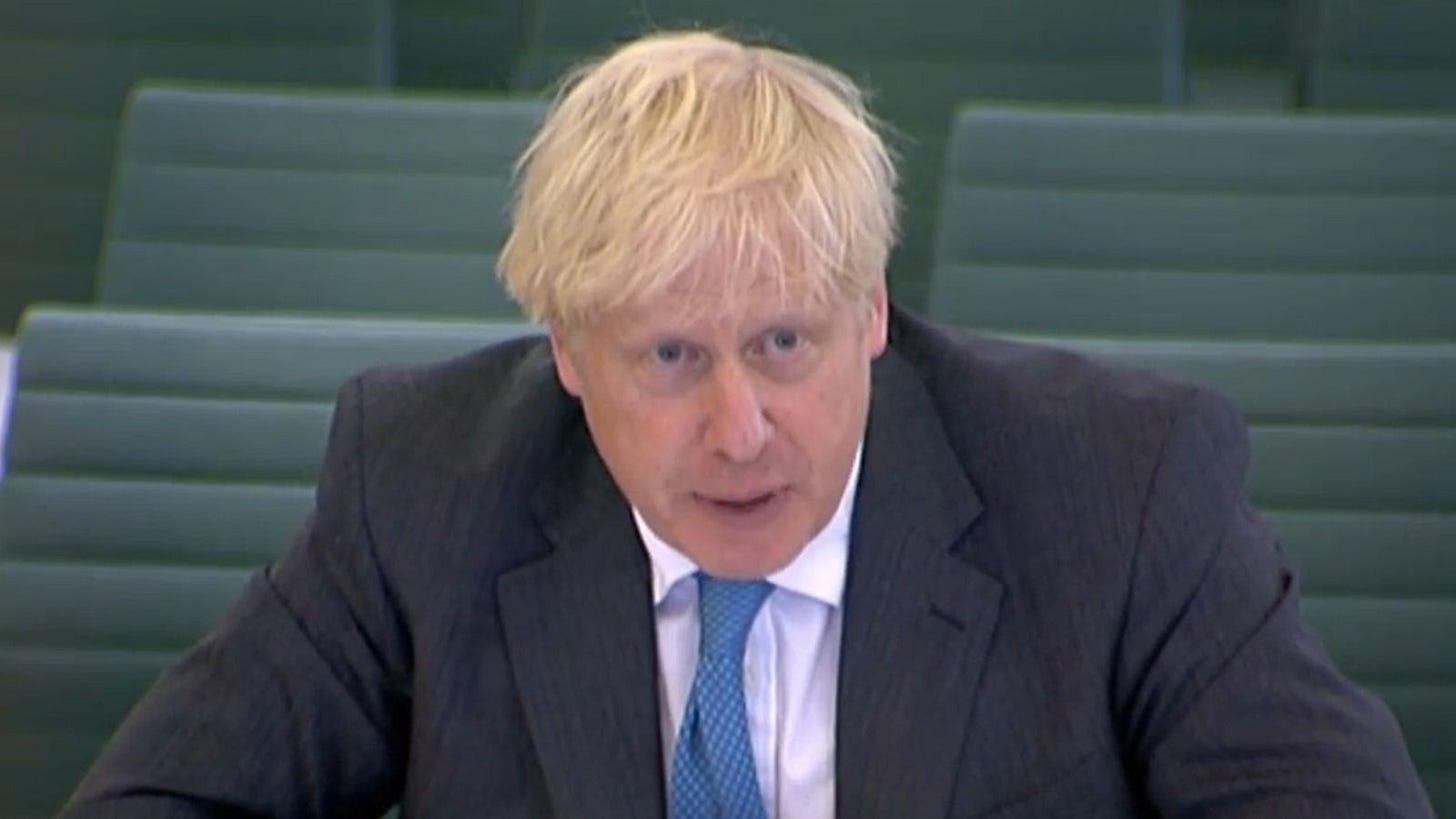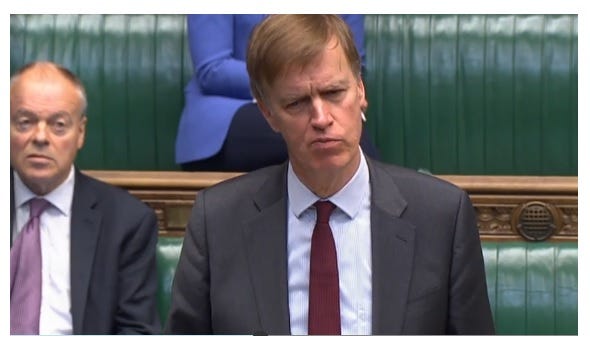No recourse to public funds
Boris Johnson was shocked at the situation and little has changed since
One of the overlooked problems locking down the whole economy was what would happen to people who were working in the UK legally but had no recourse to public funds (NRPF).
If they were fired and not put on furlough, which was more common in the kinds of low-paid work people with no recourse to public funds do, they could not just get another one.
Hang on
Labour MP Stephen Timms brought this issue up with then PM Boris Johnson two months into the pandemic, in May 2020, on the Liaison Committee.
Timms told Johnson about a hard-working, law-abiding family in his constituency, including two British-born children, who were destitute because the father had lost his income.
Johnson replied:
“Hang on, Stephen. Why aren’t they eligible for universal credit, employment and support allowance or any of the other benefits”.
Timms explained: because of no recourse to public funds.
Johnson replied:
“I am going to have to come back to you on that, Stephen. Clearly people who have worked hard for this country, who live and work here, should have support of one kind or another… I will find out how many there are in that position and we will see what we can do to help.”
Computer says ‘no’
Stephen Timms recalled that exchange in a Backbench business debate he led in the Commons yesterday (Thursday, 11 May), again raising the issue of NRPF, and commented:
“Unfortunately, however, the Prime Minister’s opinion was not his Government’s policy. He did not find out how many were in that position, because the Home Office does not know.”
People living and working in the UK on non-permanent visas can apply for a 10-year track to indefinite leave to remain, but during that time they have NRPF — no social security or benefits. It is a long and expensive process, which has to be renewed every two years costing thousands of pounds.
While it is understandable that the Home Office does not keep track of whether people who have applied all stay, it does not even keep track of how many such applications it has granted.
According to Timms,
“Last November, I asked in written question 93420 when the new Atlas case working system would tell us the number of applicants who have no recourse to public funds attached to their leave to remain. The answer came back that, ‘remaining areas will complete their transition to Atlas in 2023, after which time it will be possible to explore what further information can be produced using the new system’.”
In the meantime, the House of Commons Library estimates that 1.6 million people have leave to remain with no recourse to public funds.
Cost of living crisis
In the current cost of living crisis, the Government have offered numerous schemes and payments to support low-income families with the pressure — but not families with NRPF, of course. They are not eligible for any of the support payments (except for the energy price guarantee) even if they have children born here, who are British citizens.
Praxis has surveyed families with no recourse to public funds over the past month: two thirds are struggling to afford food; 59% have been forced into debt to pay for essentials, about three times the proportion of the population as a whole; and half are relying on charities and food banks for basic needs, compared with 3% of the population as a whole.
Timms pulled on cross-party support for his call on the Government:
“to considering extending child benefit to all British children, irrespective of their parents’ status, and allowing parents access to public funds after five years? Those are not radical changes. They are affordable, sensible reforms that will be advocated in an op-ed in The Times tomorrow that is co-authored by me and the hon. Member for Ruislip, Northwood and Pinner (David Simmonds). They were proposed unanimously by a Select Committee with a Conservative majority and they would support thousands of families during the biggest fall in living standards on record.”
Manifesto commitment
Labour’s Shadow Minister Sarah Jones focused on the issue of low-paid work. Many of those with NRPF are on minimum wage jobs — and the minimum wage has not adjusted to account for inflation.
Often people are forced into taking second jobs which are precarious or exist in the grey economy to keep up with costs.
Jones attacked the Government’s record on enforcing the minimum wage and labour standards.
While the number of complaints from workers received by HMRC’s national minimum wage unit has more than doubled from 1,500 five or six years ago to 3,300 last year, there have been only nine prosecutions for non-payment of the national minimum wage in the entire period since 2015.
She pointed out the alphabet soup of agencies responsible — Gangmasters and Labour Abuse Authority, Employment Agency Standards Inspectorate and HMRC’s living wage enforcement team.
The Conservatives’ 2019 manifesto committed to creating a single labour market enforcement body to tackle exploitation and poor conditions before the next election. Jones called on them to keep that commitment.
Balancing migrant labour with the risk of destitution
Responding to the debate, Immigration Minister Robert Jenrick said that NRPF was a policy that had accumulated over many years through successive governments and was part of the UK’s “comparatively permissive legal migration system”.
He argued that the salary threshold for migrants of approximately £26,000 per year was a low bar. One solution to destitution for people with NRPF, he suggested, would be to raise that bar.
But then — this was not a point the Minister made directly — we would lose a lot of the migrant labour that is still so important to the UK economy. Whether that is for good or ill, you decide.
But the Minister was keen to sound conciliatory and laid out several measures the Government have taken to ease pressure on workers with NRPF.
“Migrants with permission under the family or private life routes, permission outside the rules on the basis of article 8 of the European convention on human rights or the Hong Kong British national overseas route, can apply for free to have the NRPF condition lifted by making a ‘change of conditions’ application. The latest data published in February, for quarter 4 of 2022, shows that 68% of the decisions taken on ‘change of conditions’ applications were granted and that the Home Office and its associated organisations have now restored that process to pre-pandemic levels”.
He also pointed out, that workers with NRPF who have children can now access free school meals and early years education for two-year-olds — something which Stephen Timms welcomed.
The Minister also said that local authorities have the remit to provide basic safety-net support regardless of immigration status. And he accepted the point made by several MPs that that local authority support was inconsistent because its application was based on vague Home Office guidance. He committed to looking again at the wording of that guidance. But this doesn’t touch the question of the adequacy of that local authority support.
The Minister also committed to publishing the relevant data on NRPF… as soon as the new computer system is up and running.
Timms thanked him for that and wrapped up by reiterating the two key recommendations from the Work and Pensions Committee:
“First, families with children should automatically be exempted from NRPF after, at most, five years. Secondly, where the children are British citizens, child benefit should be payable, notwithstanding their parents having no recourse to public funds.”
Timms’ op-ed in The Times is yet to appear as of writing. Meanwhile the Government are trying to look tough on immigration. Could that mean rewarding people who take legal routes and work legal jobs — to undercut the business model of the gangsters and traffickers, as we’ve been told? Or will it mean a return to squeezing access to welfare?
The Government want work to pay. Only changes in the economy can really help that.







